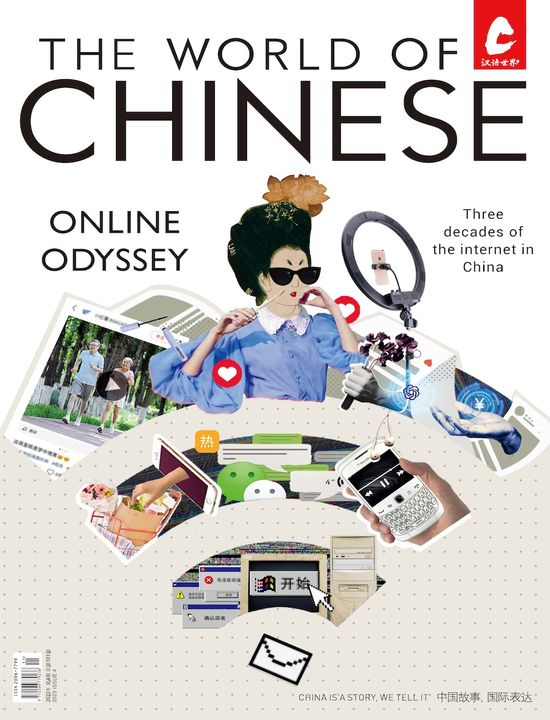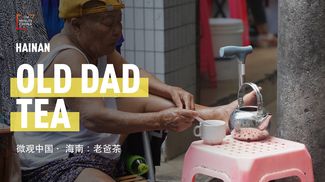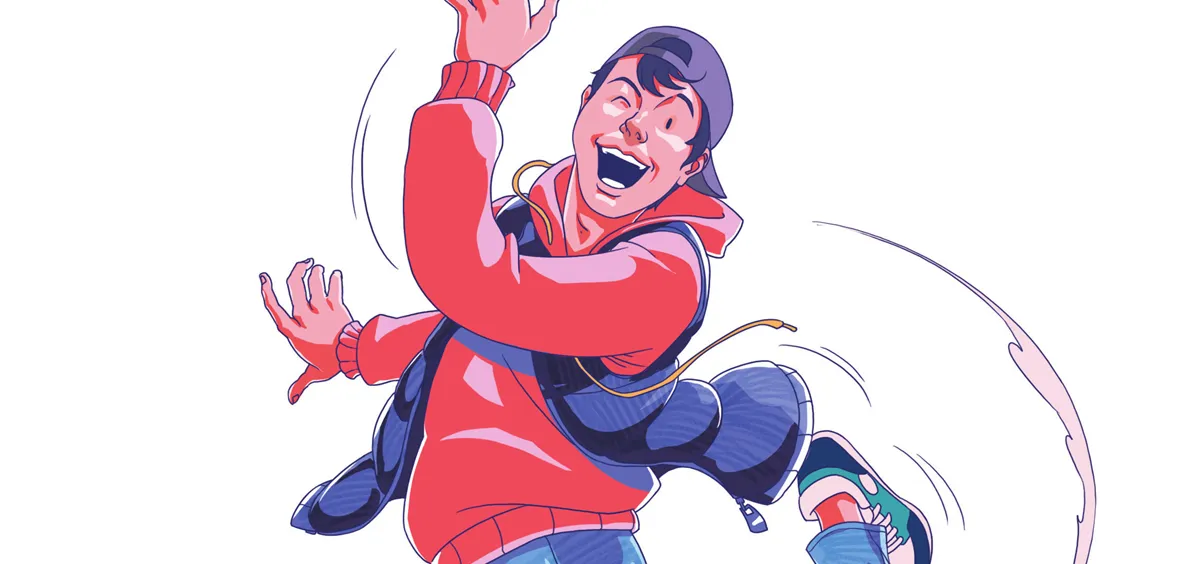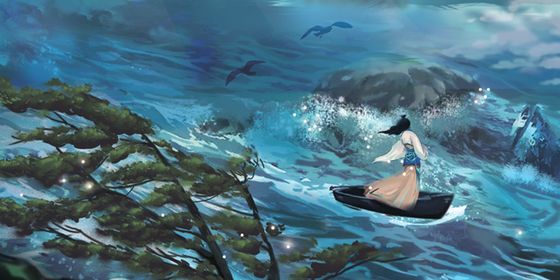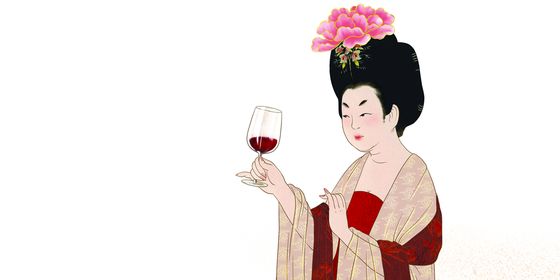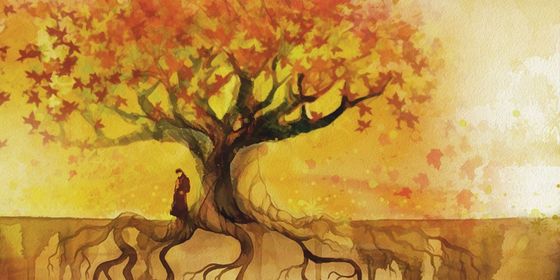Don’t let go of this slippery character
“She bathed in the glassy warm water of a fountain pool/ Which cleansed her creamy skin in the spring early and cool (春寒赐浴华清池, 温泉水滑洗凝脂),” poet Bai Juyi (白居易) wrote of Imperial Concubine Yang, one of the “Four Renowned Beauties” of ancient China.
In Bai’s imagination, it was the legendary beauty’s smooth skin that first endeared her to Emperor Xuanzong of the Tang dynasty (618 – 907)—who retained his affection for Yang for over a decade, even after her tragic death during the An Lushan Rebellion: “Borne up by her attendants/ She rose too faint to move/ And this was when she first received the monarch’s love.”
Originating over 2,000 years ago, the character 滑 (huá, smooth) got its meaning from the “water” (水 shuǐ) radical on the left and its sound from the “bone” (骨 gǔ) radical on the right. Though its pronunciation has changed, its form and basic meaning have remained consistent throughout history.
For instance, Tang poet Du Fu’s (杜甫) lines, “It’s impossible to fully protect oneself from rain/ Clothes get cold, and footsteps become slippery (既无御雨备,径滑衣又寒)” is almost identical to the modern idiom 天雨路滑 (tiānyǔ lùhuá, a slippery road on rainy days). For surfaces that become slippery due to moisture, 湿滑 (shīhuá) is more commonly used nowadays, as seen on the road sign 路面湿滑,请小心驾驶 (Lùmiàn shīhuá, qǐng xiǎoxīn jiàshǐ, The road is slippery, please drive carefully).
The meaning of 滑 was later expanded to describe other smooth and slippery objects, such as 光滑 (guānghuá, glossy) for creamy skin, glossy hair, or smooth stones. 滑稽 (huájī, comical), originally the term for a round drinking vessel, became a metaphor for smooth-tongued individuals, and later, amusing people or situations. For ridicule, you can call someone or something “the biggest joke in the world” (滑天下之大稽 huá tiānxià zhī dà jī), as in: 这么荒谬的迷信还有人信,真是滑天下之大稽 (Zhème huāngmiù de míxìn hái yǒu rén xìn, zhēnshi huá tiānxià zhī dà jī! How ridiculous! Some people still believe such absurd superstitions).
The character also serves as a verb, meaning “to move smoothly,” such as in the coasting motion (滑行 huáxíng) of cars and trains, and the gliding (滑翔 huáxiáng) of birds and airplanes. Lubricants (润滑剂 rùnhuájì or 润滑油 rùnhuáyóu) are used to facilitate the unhindered movement of machines.
滑 also describes the slipping and sliding of many winter sports. Skiing is 滑雪 (huáxuě), and skating is 滑冰 (huábīng). In China, skating is believed to have originated from the ancient ice activity known as 冰嬉 (bīngxī, literally “ice play”), which dates back to at least the Song dynasty (960 – 1279). The modern form of the sport is said to have begun with the northern Manchu people, who founded the Qing dynasty in 1636. Every year, the Qing government would hold a grand skating event with performances, parades, and competitions between the 八旗 (bāqí, Eight Banners) of the Manchu army.
Regular citizens also practiced this “national activity” in Qing times, and skating has remained popular in the capital ever since. Each winter, old and young can be seen skating together on the frozen lakes of Shichahai Park, an authentic slice of Beijing life made famous by director Feng Xiaogang’s 2015 movie Mr. Six.
Skiing may have been less popular in modern times, but cave paintings depicting a similar activity in the Altai Mountains of the far northwest, perhaps from 5,000 or more years ago, suggest the technique may well have originated from China.
More recently, the government has been funding the construction of 滑雪场 (huáxuěchǎng, ski resorts) and trying to get schoolchildren on the snow ahead of the Beijing 2022 Winter Olympics. Skateboarding (滑板 huábǎn), another slippery sport, had remained niche due to its perceived danger and association with delinquent behavior, until the International Olympic Committee announced its inclusion in the 2020 Tokyo Olympic Games.
Skiers and skateboarders are frequently in danger of 滑倒 (huádǎo, slipping and falling); colloquially, they can say they’ve 滑了一跤 (huá le yì jiāo, taken a slip). In this sense, 滑 implies a downward movement, as indicated by the words like 经济下滑 (jīngjì xiàhuá, economic downturn), 滑坡 (huápō, landslide), and 滑梯 (huátī, playground slide).
When used to described personality, 滑 is not a trait many people are lining up to claim: as in English, saying 这个人滑得很 (Zhège rén huá dé hěn. This person is quite slippery) is to describe someone as insincere, crafty, or dishonest. 油滑 (yóuhuá, slick) or 圆滑 (yuánhuá, smooth) are similar pejoratives for untrustworthy people.
Those who shirk work or responsibility, 耍滑 (shuǎhuá) or 耍滑头 (shuǎhuátóu), are denounced as 滑头 (huátóu, slippery customers). People with glib tongues, who never mean what they say, are called 油嘴滑舌 (yóuzuǐ-huáshé, “oily mouth and smooth tongue”) or 油腔滑调 (yóuqiāng-huádiào, “oily tone and smooth tune”).
Unpopular as these unctuous individuals may be, there are times when flattery works to one’s advantage, as the patriotic poet and official Qu Yuan (屈原) discovered the hard way in the fourth century BCE. “Shall I be honest and upright to maintain my innocence, or smooth and wily to serve the time? (宁廉洁正直以自清乎,将突梯滑稽,如脂如韦,以洁楹乎?)” the politically disgraced Qu is said to have written before his death by suicide—averse, unyielding, and principled to the end.
On the Character: 滑 is a story from our issue, “Alpine Ambitions.” To read the entire issue, become a subscriber and receive the full magazine. Alternatively, you can purchase the digital version from the App Store.
